But for China, Trump’s weaknesses are more important than his bluster. During numerous off the record discussions with Chinese government officials and scholars, we are finding that an increasing number are hoping for Trump’s reelection next year. At a time when China’s political influence and military capabilities are growing, they argue that in spite of his anti-China bluster, Trump has afforded Beijing the space to expand its influence across Asia and, more importantly, comprehensively weakened Washington’s global leadership. From a zero-sum standpoint, many Chinese have concluded that Trump’s policies are strategically very good for China in the long run.
These thinkers believe that Trump, by polarizing U.S. domestic politics, damaging Washington’s international credibility and traditional global stewardship, and undermining long-standing alliance arrangements, has presented Beijing with its “greatest strategic opportunity since the end of the Cold War,” as Yan Xuetong, one of China’s foremost strategic thinkers, put it.
Beijing has already gained significantly from Trump’s term in office. Despite prosecuting trade spats with India and the European Union, as well as China, the administration has largely given up on using World Trade Organization courts to litigate trade complaints and has blocked appointments to the organization’s Appellate Body. These actions not only get in the way of the world’s most important trade dispute settlement system but also embolden other countries to ignore international law.
When not damaging global governance institutions and mechanisms that helped establish the United States as the world’s preeminent superpower, Trump’s antipathy toward trade deals such as the Trans-Pacific Partnership has afforded China an opening. While Trump is shredding the cooperative trade agreements that have been central to U.S. international economic policy, Beijing is in the late stages of negotiations for the Regional Comprehensive Economic Partnership, a deal that would tie China, India, Japan, South Korea, Australia, New Zealand, and the 10 Association of Southeast Asian Nations members into the world’s largest trade bloc. If that agreement is ratified, the United States will be left out of the two largest global free trade deals, the other being the Comprehensive and Progressive Agreement for Trans-Pacific Partnership, negotiated among 11 countries involved in the original Trans-Pacific Partnership negotiations. This would add insult to injury, as China already trades more with every major Asian economy than the United States does.
These relinquishments of U.S. leadership in multilateral institutions provide China the space to take a greater role in global governance and in setting international rules and norms. Beijing has taken notice, asserting itself at the United Nations and submitting trade war-related complaints to the WTO, while promoting the Asian Infrastructure Investment Bank as a viable alternative to the World Bank and International Monetary Fund. Though Beijing has moved to make the Belt and Road Initiative the unparalleled vanguard project of global infrastructure development, the Trump administration has yet to provide a viable alternative.
Previous U.S. presidents have recognized that the United States gains strength from working with partners with which it shares values, history, and a sense of purpose. This is no more true than in its approach to the Asia-Pacific, and as Michael Green, a former senior director for Asian affairs at the National Security Council under President George W. Bush, recently said in testimony before Congress, “without allies, we have no China strategy.”
But Trump has taken a starkly different approach, and his rhetoric, actions, and decisions have led countries to question whether they can count on the United States. Trump’s has abandoned the Kurds, longtime partners in the Middle East; questioned America’s commitment to NATO; and let the U.S. post-World War II East Asian alliance network decay.
As China expands its reach, South Korea and Japan, U.S. allies that have formed the backbone of the U.S. military’s Northeast Asia security strategy for over 70 years, are locked in a bitter dispute that has led them to partially suspend their trade relationship. The Trump administration has largely ignored the dispute, displaying little understanding of the importance of these regional partners. Notwithstanding its long history of disagreements with both Tokyo and Seoul, Beijing has now stepped forward and offered to assist in settling the dispute, highlighting the absence of U.S. leadership on the issue.
The Trump administration’s lack of diplomatic skill is also evident in Southeast Asia, as the Philippines, a U.S. ally, has drifted toward Beijing in recent years. Philippines President Rodrigo Duterte has made five trips to China and none to the United States since assuming office in 2016. In an all-too-apt display of Duterte’s strategic alignment, the Philippines used Chinese money to build a new city on land that had once been part of Clark Air Base, a U.S. military installation established during the Spanish-American War. These developments come while Beijing continues to ignore a U.N. ruling in favor of the Philippines in a South China Sea dispute, showing just how much Washington’s relationship with Manila has regressed.
As for the trade war, the much-hyped mini-deal, which included agreements on purchases of agricultural goods and the elimination of future tariffs, fell well short of Trump’s original goal of forcing Beijing to adopt critically important structural economic reforms that would help establish a balanced trade relationship with China over the long term.
Instead of rolling back Chinese subsidies and improving intellectual property protections, the deal mostly helps Trump relieve political pressure in agricultural states as he heads into the presidential campaign. This is part of a pattern where Trump sets high objectives, boasts he will achieve them, and then fails to deliver. The mini-deal was clearly welcomed in China, viewed as a victory for Xi, and provided further evidence that Trump’s capricious behavior can be tolerated, if not managed. The Chinese will see Trump’s acceptance of the watered-down deal, made up mostly of Chinese purchases that have been on the table for more than a year, as a sign of weakness as he faces possible impeachment and another grueling campaign.
Though the Chinese leadership certainly finds Trump to be personally annoying, that he largely views U.S.-China ties through the lens of trade has, according to several of the scholars we spoke with, limited further deterioration of the relationship. Trump has pushed back against his advisors’ more provocative and aggressive policy proposals while watering down others, such as the recent Xinjiang sanctions, which many members of Congress wanted to include Global Magnitsky Act provisions. In contrast, several Democratic presidential candidates, most notably Elizabeth Warren, have called for a tougher line on many China-related issues, including Hong Kong and human rights.
A different U.S. president could, and likely would, take a tougher tack on human rights and use the vast resources of all departments and agencies of the U.S. government to operationalize and execute a new and updated approach to China. Meanwhile, as the bilateral relationship becomes more contentious, many Chinese think that four more years of Trump weakening the United States’ international standing could yield Beijing the space to consolidate its global gains and welcome a new American president in 2025 from an even more favorable strategic position.
To be clear, not every Chinese scholar or official with whom we talked wanted to see another four years of Trump. Some, such as the University of International Relations professor Da Wei, have argued that Trump’s damaging of both Chinese and U.S. interests could result in a deeply compromised international order and complicate Beijing’s continued rise.
But those who hope for a second term see an unprecedented strategic opportunity for China in Trump’s destruction of what they view as the key U.S. pillars of strength. By gutting U.S. political advantages at home, eviscerating America’s reputation and credibility abroad, and subverting the heretofore solid alliance structure in the Asia-Pacific, Trump is weakening the United States. In doing so, he is granting China the opportunity to gain critical geopolitical advantages and create a more favorable international environment in which to advance its own interests.
Trump asked Chinese leader Xi Jinping to help him win re-election, offering to reduce U.S. tariffs in exchange "for some increases in Chinese farm-product purchases, to help with the crucial farm-state vote."[18][19]
Trump voiced approval for the Chinese government's building of Xinjiang re-education camps for the Muslim Uyghur population.[19]
Trump refused to publicly criticize China's human rights violations and refused to issue a statement marking the 1989 Tiananmen Square massacre, saying "that was 15 years ago."[20]
Trump did not want to get involved with the 2019–20 Hong Kong protests saying "We have human-rights problems too".[20]
European far-right parties have developed close relations with Russia, based both on ideology and strategy. These parties see in President Vladimir Putin the model of a strong, conservative leader who defends traditional values and opposes decadent West. Since most far-right parties are at the same time anti-American and against European integration, they also see a close relationship with Russia as a necessary foothold in order to achieve the gradual dissociation of their countries from Euro-Atlantic Institutions. The Kremlin views these parties as possibly being useful to expand Russia's geopolitical influence. This unholy alliance should be emphasised and condemned more often in Europe.
There has been an increase of nativist, populist parties in many parts of Europe in recent years.
There are also suggestions of covert Russian support or funding for far-right parties.
Salvini has praised Putin and even worn a Putin T-shirt during a session of the European parliament. Marine Le Pen, who has signed her National Rally party up to Salvini’s bloc, said Russia’s annexation of Crimea was legitimate. Her party has taken a loan from a Russian bank. Shortly before presidential elections in France in 2017, she met Putin in the Kremlin.
He also ruled out cooperation between PiS and Le Pen, partly due to the Russia links. “Not only is she funded by Russia, she’s way more far right when it comes to the social issues. She’s way too extreme for us to cooperate.”
Austrian politicians are not the only ones to be seeking deals with Moscow
The implosion of Austria’s coalition government earlier in the week has cast a light on the linkages between Europe’s resurgent rightwing parties and the Kremlin. Like many good scandals, it came with video.
Now ousted vice-chancellor Heinz-Christian Strache, head of the far-right Freedom party (FPO), was caught on tape promising lucrative contracts to an individual posing as the niece of a Russian oligarch in exchange for political support.
Many of the EU’s rising tide of rightwing parties, who are poised to take an unprecedented share of seats in European parliamentary elections this week, have sought out and found a willing partner in Moscow.
Austria: Freedom party
Hungary: Fidesz
Italy: Northern League
Germany: Alternative for Germany
France: National Rally
Hungary: Jobbik
UK: Brexit party
Less than two weeks before pivotal elections for the European Parliament, a constellation of websites and social media accounts linked to Russia or far-right groups is spreading disinformation, encouraging discord and amplifying distrust in the centrist parties that have governed for decades.
European Union investigators, academics and advocacy groups say the new disinformation efforts share many of the same digital fingerprints or tactics used in previous Russian attacks, including the Kremlin’s interference in the 2016 U.S. presidential campaign.
“The goal here is bigger than any one election,” said Daniel Jones, a former F.B.I. analyst and Senate investigator whose nonprofit group, Advance Democracy, recently flagged a number of suspicious websites and social media accounts to law enforcement authorities. “It is to constantly divide, increase distrust and undermine our faith in institutions and democracy itself. They’re working to destroy everything that was built post-World War II.”
Fight clubs, neo-Nazi soccer hooligans, and motorcycle gangs serve as conduits for the Kremlin’s influence operations in Western countries
Deep in the forests of Slovakia, former Russian Spetsnaz commandos trained young men from a right-wing paramilitary group called the Slovak Conscripts. Following Russia’s invasion of Ukraine in 2014, some of these freshly-minted paramilitaries went to fight with Russian forces in eastern Ukraine while others stayed at home to agitate against NATO as a “terrorist organization.”
It seems almost too strange to be true: fight clubs, neo-Nazi soccer hooligans, and motorcycle gangs serving as conduits for the Kremlin’s influence operations in Western countries. It sounds more like an episode of The Americans with a dash of Mad Max and Fight Club mixed in. Yet this is exactly what is happening across Europe and North America as Russia’s intelligence services co-opt fringe radicals and angry young men to try to undermine Western democracies from within. And not just in the virtual world, but in real life.
Far more often, the recruitment, indoctrination, and manipulation of fringe right-wing groups seems aimed at sowing political chaos in Western democracies and subverting or weakening democratic institutions. But occasionally, as in Ukraine, these proxies can operate directly in support of Kremlin operations.

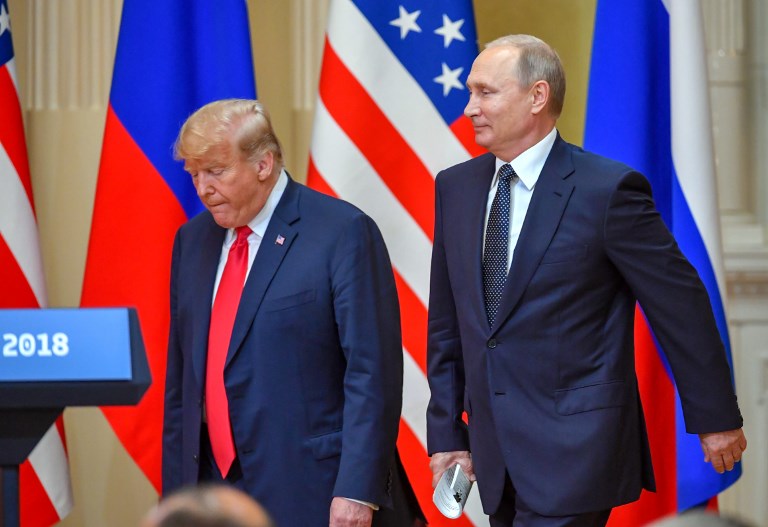
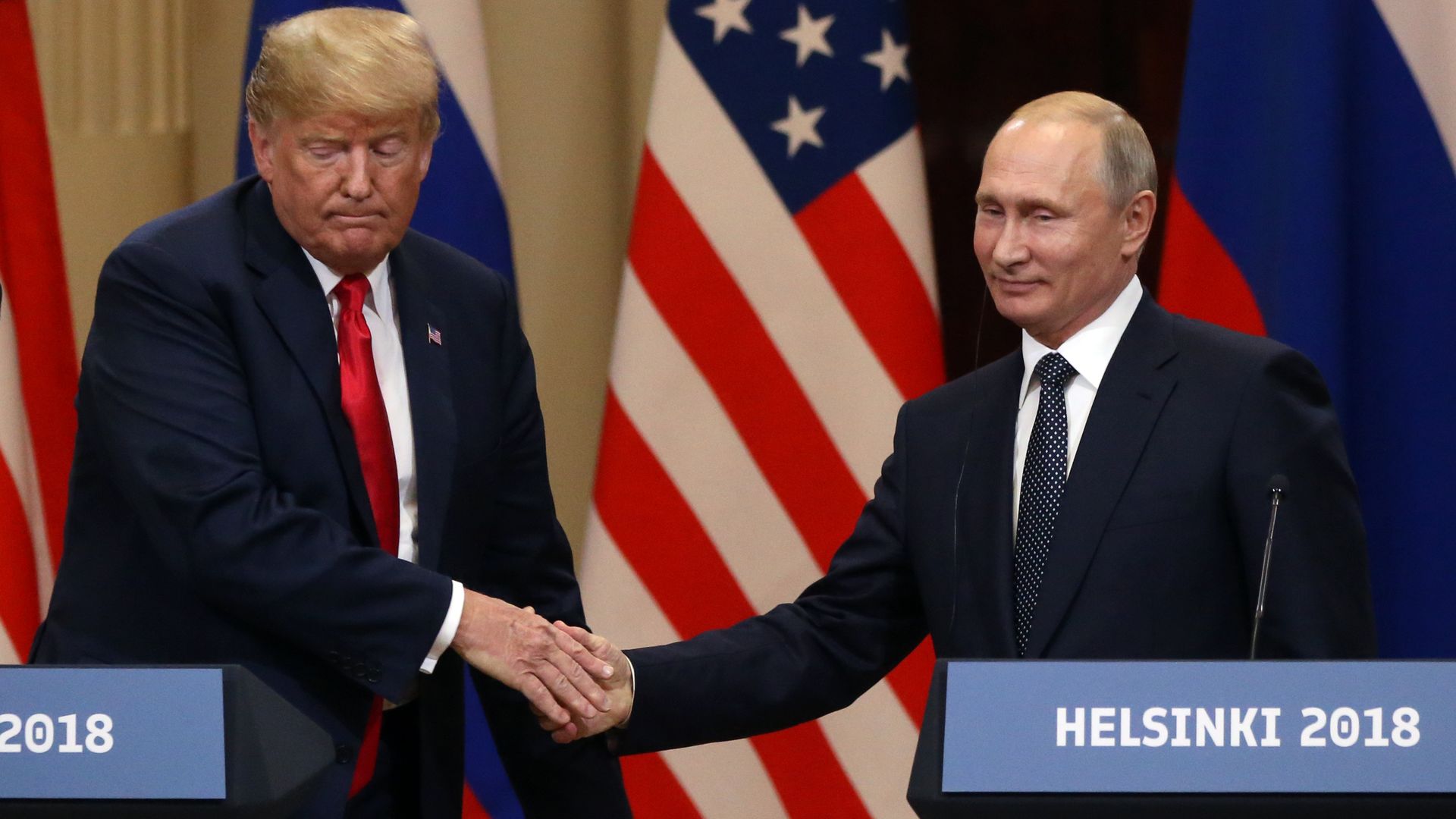
WASHINGTON—The U.S. intelligence community’s conclusion that Russia interfered in the 2016 election to help elect Donald Trump was accurate and based on strongly sourced information and sound analytical judgment, a bipartisan Senate report has concluded.
The Senate Intelligence Committee on Tuesday reaffirmed its support for the U.S. intelligence community’s conclusion that the Russian government interfered in the 2016 presidential election with the goal of putting Donald Trump in the Oval Office.
The intelligence community’s initial January 2017 assessment of Moscow’s influence campaign included “specific intelligence reporting to support the assessment that [Russian President Vladimir] Putin and the Russian government demonstrated a preference for candidate Trump,” the committee’s report says. The panel also found “specific intelligence” to support the conclusion that Putin “approved and directed aspects” of the Kremlin’s interference efforts.
These highlights from Trump’s nearly four years in office read like Vladimir Putin’s wish list.
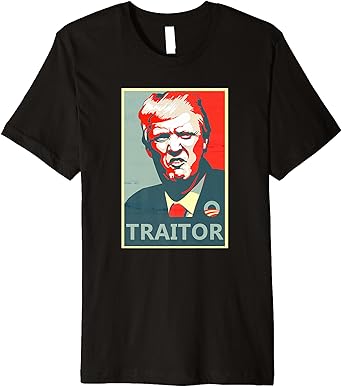
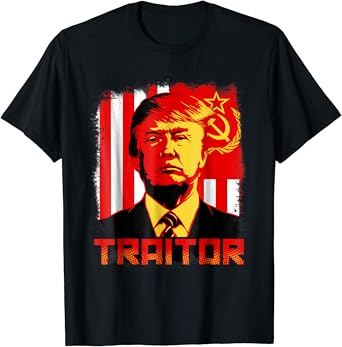
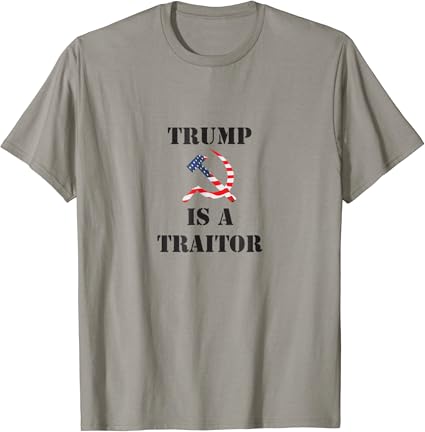
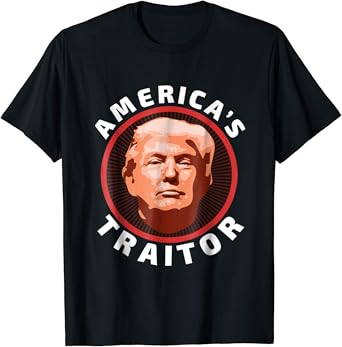
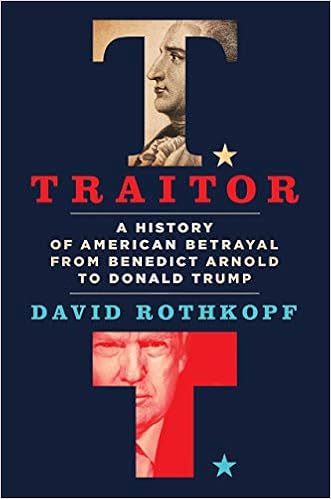
Britain’s spy agencies played a crucial role in alerting their counterparts in Washington to contacts between members of Donald Trump’s campaign team and Russian intelligence operatives, the Guardian has been told.
GCHQ first became aware in late 2015 of suspicious “interactions” between figures connected to Trump and known or suspected Russian agents, a source close to UK intelligence said. This intelligence was passed to the US as part of a routine exchange of information, they added.
Over the next six months, until summer 2016, a number of western agencies shared further information on contacts between Trump’s inner circle and Russians, sources said.
| 欢迎光临 eNewsTree.com (http://enewstree.com/discuz/) | Powered by Discuz! X3.2 |